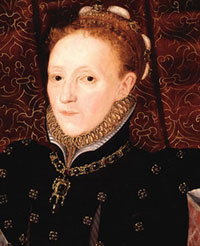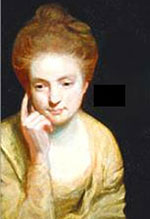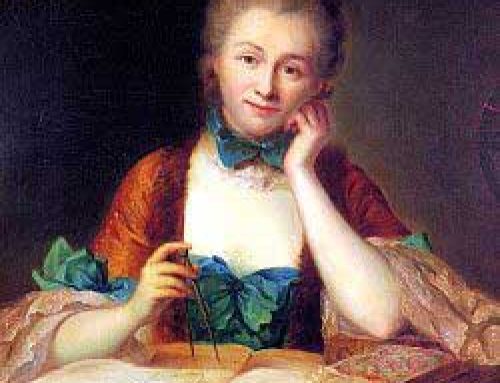
Queen Elizabeth I of England (1500s AD)
Renaissance women in power
As in the Middle Ages, European women held a lot of political power in the 1500s and 1600s AD. In France, first Catherine de’ Medici, then Marie de’ Medici, then Anne of Austria held power. In England, it was Queen Mary, then Queen Elizabeth I. Mariana of Austria ruled in Spain.
Medieval European women
Reformation European rulers
Marie de’ Medici
Anne of Austria
Mariana in Spain
All our modern Europe articles
Women abused and excluded
But ordinary women weren’t doing so well. Their fathers, brothers, and husbands often hit them. Women couldn’t go to college. They didn’t inherit as much from their parents as their brothers did. And the government often made laws to stop women from running their own businesses.

The philosopher and feminist Mary Astell (1600s AD)
Women philosophers
Some women tried to change these laws. In the late 1600s, the English philosophers Damaris Masham and Mary Astell both published books arguing that women should get better educations. Astell and Masham argued that women should be able to work in science and in other careers.
Margaret Cavendish
Damaris Masham
Mary Astell
Democracy excludes women
In the 1700s and 1800s AD, the power of kings and queens slowly gave way to democratic governments in Europe. Slowly men got the vote. First richer men could vote, then poorer ones, then all men. These democracies of men didn’t elect women to power. So there were not as many women in power in Europe anymore.
Cromwell in England
The French Revolution
Mary Wollstonecraft

A man beating his wife (1840)
More women in power
Women ruled only in places democracy had not yet reached. In Spain, women rulers included Elizabeth Farnese, Barbara of Portugal, Maria Luisa, Maria Christina, and Isabella II, and another Maria Christina. And in Austria, Maria Theresa and Sophie held power.
Elizabeth Farnese
Maria Luisa
Maria Theresa
Women fight for the vote
But starting with the French Revolution, women began to demand the vote in the new democracies.

Pankhurst arrested while protesting for the right to vote (about 1908)
It took a long time, and a lot of fighting. But after the end of World War II, in 1944, women could vote everywhere in Europe (except Switzerland, which waited until 1971).
World War II
Women change the laws
Once they could vote, women used their votes to end laws that gave their inheritance to their brothers. And women changed laws that prevented women from starting businesses and borrowing money and signing contracts and testifying in court. Slowly women convinced lawmakers that hitting your wife or daughter should be just as illegal as hitting another man.

Angela Merkel, Prime Minister of Germany
Women elected to power
Little by little, women also started to be elected to power again, though still not as many as before democracy. In the 1970s, Margaret Thatcher was the first woman elected Prime Minister of England. And in 2005, Angela Merkel was the first woman elected Chancellor of Germany. But even with legal equality and the same education as men, women are still poorer than men today, all over Europe.
